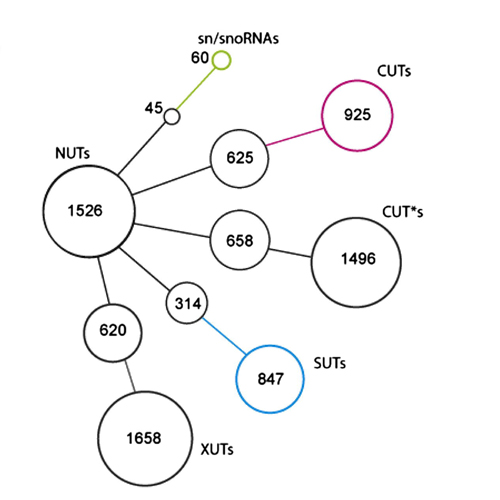Transcriptome Surveillance by Selective Termination of Noncoding RNA Synthesis
21-Nov-2013
Cell, 2013, http://dx.doi.org/10.1016/j.cell.2013.10.024, Volume 155, Issue 5, Pages 1075–1087 published on 21.11.2013
Cell, online article
Cell, online article
Pervasive transcription of eukaryotic genomes stems to a large extent from bidirectional promoters that synthesize mRNA and divergent noncoding RNA (ncRNA). Here, we show that ncRNA transcription in the yeast S. cerevisiae is globally restricted by early termination that relies on the essential RNA-binding factor Nrd1. Depletion of Nrd1 from the nucleus results in 1,526 Nrd1-unterminated transcripts (NUTs) that originate from nucleosome-depleted regions (NDRs) and can deregulate mRNA synthesis by antisense repression and transcription interference. Transcriptome-wide Nrd1-binding maps reveal divergent NUTs at most promoters and antisense NUTs in most 3′ regions of genes. Nrd1 and its partner Nab3 preferentially bind RNA motifs that are depleted in mRNAs and enriched in ncRNAs and some mRNAs whose synthesis is controlled by transcription attenuation. These results define a global mechanism for transcriptome surveillance that selectively terminates ncRNA synthesis to provide promoter directionality and to suppress antisense transcription.











